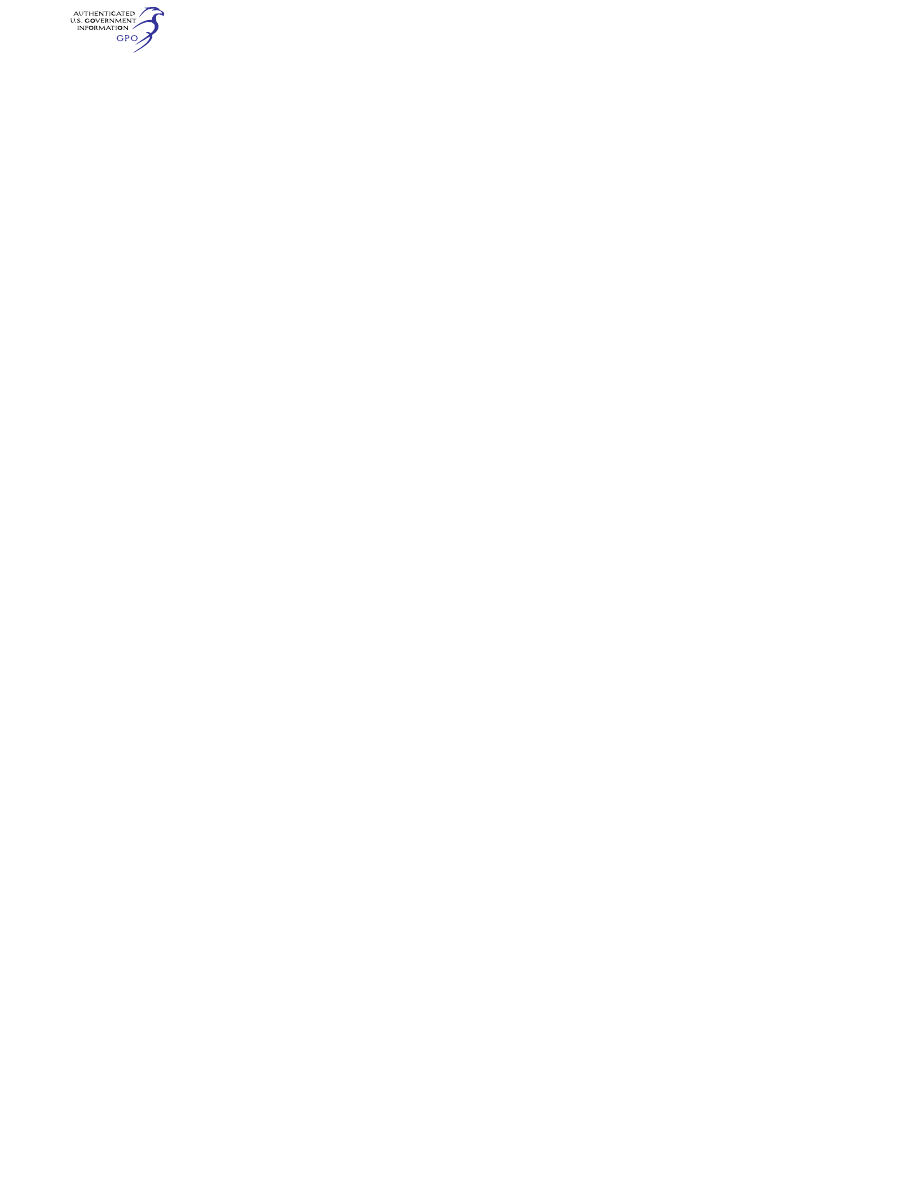
270
14 CFR Ch. I (1–1–24 Edition)
§ 25.683
(b) Compliance must be shown (by
analyses or individual load tests) with
the special factor requirements for
control system joints subject to angu-
lar motion.
§ 25.683
Operation tests.
(a) It must be shown by operation
tests that when portions of the control
system subject to pilot effort loads are
loaded to 80 percent of the limit load
specified for the system and the pow-
ered portions of the control system are
loaded to the maximum load expected
in normal operation, the system is free
from—
(1) Jamming;
(2) Excessive friction; and
(3) Excessive deflection.
(b) It must be shown by analysis and,
where necessary, by tests, that in the
presence of deflections of the airplane
structure due to the separate applica-
tion of pitch, roll, and yaw limit ma-
neuver loads, the control system, when
loaded to obtain these limit loads and
operated within its operational range
of deflections, can be exercised about
all control axes and remain free from—
(1) Jamming;
(2) Excessive friction;
(3) Disconnection; and
(4) Any form of permanent damage.
(c) It must be shown that under vi-
bration loads in the normal flight and
ground operating conditions, no hazard
can result from interference or contact
with adjacent elements.
[Amdt. 25–139, 79 FR 59430, Oct. 2, 2014]
§ 25.685
Control system details.
(a) Each detail of each control sys-
tem must be designed and installed to
prevent jamming, chafing, and inter-
ference from cargo, passengers, loose
objects, or the freezing of moisture.
(b) There must be means in the cock-
pit to prevent the entry of foreign ob-
jects into places where they would jam
the system.
(c) There must be means to prevent
the slapping of cables or tubes against
other parts.
(d) Sections 25.689 and 25.693 apply to
cable systems and joints.
[Doc. No. 5066, 29 FR 18291, Dec. 24, 1964, as
amended by Amdt. 25–38, 41 FR 55466, Dec. 20,
1976]
§ 25.689
Cable systems.
(a) Each cable, cable fitting, turn-
buckle, splice, and pulley must be ap-
proved. In addition—
(1) No cable smaller than
1
⁄
8
inch in
diameter may be used in the aileron,
elevator, or rudder systems; and
(2) Each cable system must be de-
signed so that there will be no haz-
ardous change in cable tension
throughout the range of travel under
operating conditions and temperature
variations.
(b) Each kind and size of pulley must
correspond to the cable with which it is
used. Pulleys and sprockets must have
closely fitted guards to prevent the ca-
bles and chains from being displaced or
fouled. Each pulley must lie in the
plane passing through the cable so that
the cable does not rub against the pul-
ley flange.
(c) Fairleads must be installed so
that they do not cause a change in
cable direction of more than three de-
grees.
(d) Clevis pins subject to load or mo-
tion and retained only by cotter pins
may not be used in the control system.
(e) Turnbuckles must be attached to
parts having angular motion in a man-
ner that will positively prevent binding
throughout the range of travel.
(f) There must be provisions for vis-
ual inspection of fairleads, pulleys, ter-
minals, and turnbuckles.
§ 25.693
Joints.
Control system joints (in push-pull
systems) that are subject to angular
motion, except those in ball and roller
bearing systems, must have a special
factor of safety of not less than 3.33
with respect to the ultimate bearing
strength of the softest material used as
a bearing. This factor may be reduced
to 2.0 for joints in cable control sys-
tems. For ball or roller bearings, the
approved ratings may not be exceeded.
[Amdt. 25–72, 55 FR 29777, July 20, 1990]
§ 25.697
Lift and drag devices, con-
trols.
(a) Each lift device control must be
designed so that the pilots can place
the device in any takeoff, en route, ap-
proach, or landing position established
under § 25.101(d). Lift and drag devices
VerDate Sep<11>2014
09:06 Jun 28, 2024
Jkt 262046
PO 00000
Frm 00280
Fmt 8010
Sfmt 8010
Y:\SGML\262046.XXX
262046
jspears on DSK121TN23PROD with CFR